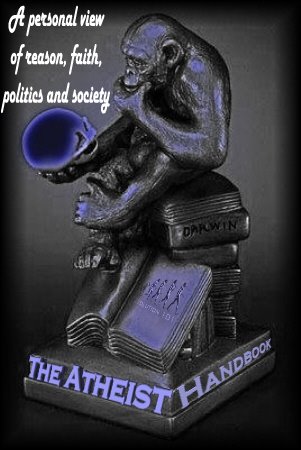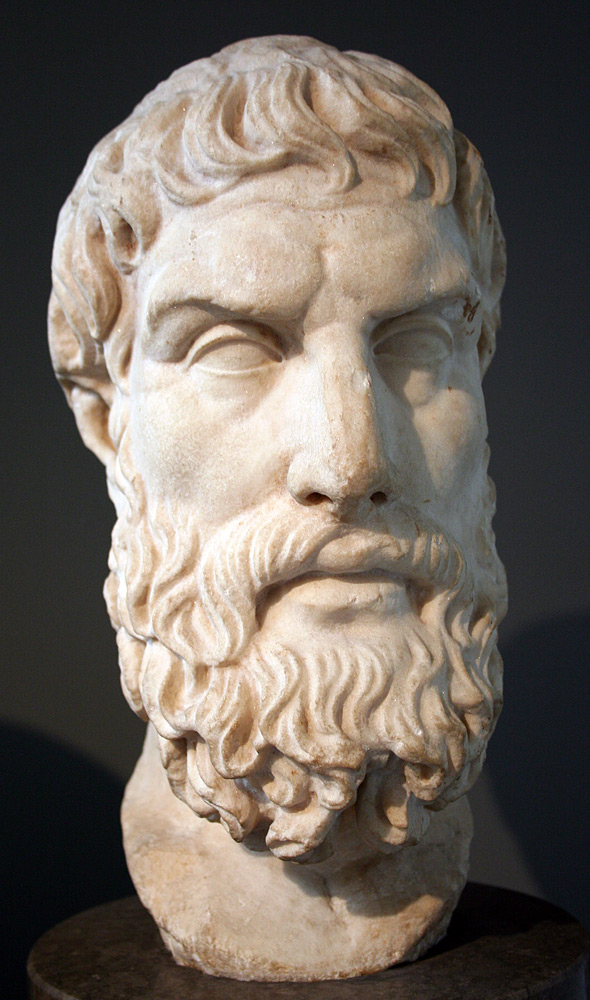 On Nov. 25 in Fonthill's St. Alexander's Church I debated Catholic Brock University professor David Goicoeecha on the existence, nature and meaning of the afterlife. We were very fortunate to have Justin Trottier from the Centre for Inquiry moderating the debate and he did an excellent job. It was a lively event, and fairly well attended. I will post my own recap later, but if you want an overview of the night check out Justin's blog here: http://www.equalismactivism.com/?p=2151 In Part 1, I posted my opening remarks. Part 2 are David's opening remarks. Part 3 is my first rebuttal and what follows is David's rebuttal. I will post a Part 5 which will be my overall view of the night.
On Nov. 25 in Fonthill's St. Alexander's Church I debated Catholic Brock University professor David Goicoeecha on the existence, nature and meaning of the afterlife. We were very fortunate to have Justin Trottier from the Centre for Inquiry moderating the debate and he did an excellent job. It was a lively event, and fairly well attended. I will post my own recap later, but if you want an overview of the night check out Justin's blog here: http://www.equalismactivism.com/?p=2151 In Part 1, I posted my opening remarks. Part 2 are David's opening remarks. Part 3 is my first rebuttal and what follows is David's rebuttal. I will post a Part 5 which will be my overall view of the night.----
Grant, in responding to your objections against the faith and practise of Catholics concerning the afterlife I will address your following eight points about: 1) evidence 2) only facts mattering 3) vicarious redemption 4) personal responsibility 5) justice 6) mandatory love 7) suffering and 8) philosophical arguments.
You write that “From an evidentiary point of view Jesus stands equally with Thor, with Zeus, and any other god ever believed in.” As I respond to your objections about evidence I will give evidence for eight different kinds of evidence and argue that your argument that only facts matter is very reductionistic. Since evidence is that which makes manifest the truth and motivates us to accept it I will try to give evidence for evidence that is: 1) historical 2) emotional 3) literary 4) psychologically comparative 5) ethically comparative 6) logical 7) exemplary and 8) metaphysical.
1) FROM MERE FACTS TO HISTORICAL EVIDENCE No one claims that Thor or Zeus were historical beings living at a certain time and place but most accept that Jesus, at least as a man, did live and teach at the beginning of our era. To bring out the value of historical evidence I will think with you about the historical Paul as related to the historical Jesus. Paul wrote his letters before the year 65 and these letters are historical evidence for the existence of Paul and Jesus. Saul was a persecutor of Christians because he did not believe that J
 esus was the Messiah or the Son of God. But then according to the story about him in The Acts of the Apostles he beheld Stephen smiling lovingly upon those who were stoning him to death. That fact so haunted him that he then heard the voice: “Saul, Saul, why do you persecute me?” That evidence from the way Stephen loved his enemies as did Jesus and from the voice of the resurrected Jesus motivated Saul to become Paul who believed in, proclaimed and wrote about the historical Jesus who was killed and who rose from the dead. Grant, do you really mean to deny that Jesus and Paul were historical Persons?
esus was the Messiah or the Son of God. But then according to the story about him in The Acts of the Apostles he beheld Stephen smiling lovingly upon those who were stoning him to death. That fact so haunted him that he then heard the voice: “Saul, Saul, why do you persecute me?” That evidence from the way Stephen loved his enemies as did Jesus and from the voice of the resurrected Jesus motivated Saul to become Paul who believed in, proclaimed and wrote about the historical Jesus who was killed and who rose from the dead. Grant, do you really mean to deny that Jesus and Paul were historical Persons?2) FROM MERE FACTS TO EMOTIONAL COGNITION’S EVIDENCE Grant, you write: “Evidence matters. Facts matter. Personal affirmations or appeals to ideas that happen to make us feel better do not.” But is there not an emotional cognition which motivates that Pascal, Hume and Max Scheler explain in convincing fashion? There are the values of beauty, goodness, truth and holiness. The heart has its reasons which the mind knows not for discerning these values. Our passions know their nuances and motivate us to perform our physical, vital, intellectual and spiritual exercises as we seek fuller life, light, logos and love with their health, happiness, wisdom and holiness. Grant, do you mean to deny this emotional cognition whose evidence is our chief motivator?
3) FROM MERE FACTS TO THE TRUTH OF STORIES Grant, you argue that the story of vicarious suffering for the redemption of others is immoral and harmful. Heaping the wrongs of mankind on the God-man is a scapegoating that violates every sense of justice. But, according to the stories of The Good News Stephen imitated Jesus in suffering for his enemies and that was such powerful evidence that it came to play a role in Paul’s thinking who said: “I make up in my suffering what is lacking in the suffering of Christ.” This story of a love that suffers even for the enemy has more truth to it than any simple fact without value. As the great literature of humankind shows there can be more truth in fiction than in fact. I am not saying that this story of suffering for others with love is a fiction. But, Grant, have not Stephen, Paul and many holy saints found joy and brought joy to other by going through their Dark Night out of love with Jesus for others? Would you condemn and belittle the mother who can find joy even in suffering for her child?
4) FROM MERE FACTS TO THE EVIDENCE OF COMPARATIVE PSYCHOLOGIES Grant, I agree with you that personal responsibility is very important. But if you study the history of the concept of personhood you will see that it was first worked out to understand the three persons in the one God. For the Greeks the word person or prosopon referred to the mask which an actor wore in the Greek Theatre. In Latin, that was translated into persona or that through which the voice sounds. Tertullian, an early Church father around 150 AD., began to write of the three persons of the Trinity. That was defined at the Council of Nicea in such a way that each person was equal in worth or dignity, each was unique and each was interrelated or interpersonal. With Augustine in De Trinitate and Boethius in his Consolation of Philosophy this threefold notion of personhood began to be applied to human persons. In other cultures there is no idea that all humans are persons of equal worth which is the basis of a responsibility of all persons for all persons. The basis for the Canadian approach to health, education and welfare is grounded in this notion that persons like Tommy Douglas expound as rooted in the Christian heritage. If you compare various cultural psychologies you will see the evidence why none is like the Christian in upholding personal rights.
5) FROM MERE FACTS TO THE EVIDENCE OF COMPARATIVE ETHICS Grant, you argue that: “In Catholic thinking everyone is ‘good’ regardless of what they have done and can be purified in purgatory.” Thank you for this statement which directly relates to our question about the afterlife. But let us notice the complexity of what you are saying. In accord with justice people are guilty of any harm they do to self or to another. Evil thoughts, words, and deeds are blameworthy. But God does not make junk and all flesh will exist happily with the God who is the love between Father, Son, and Holy Spirit throughout eternity. But between the time we die and the resurrection of the flesh at the end o the world we will in accordance with justice have the opportunity to reconcile with each other in the purificational process of purgatory. All other ethics as you suggest put the primacy upon justice. But Catholic ethics stresses the incarnational love theology as primary and the atonement justice theology as secondary. When you compare the ethical worldview of the various religions and philosophies you are right that all but the Catholic put the emphasis on justice. Holy Mother Church does stress a love for all flesh.
6) FROM MERE FACTS TO THE EVIDENCE OF THE LOGIC OF AGAPEIC LOVE Once Paul beheld Stephen loving those who were killing him he saw the logic of a new ethics. Before Jesus, loving your neighbour meant loving those of your own ethnocentric group. But Paul saw that in Christ’s love there is no longer Jew nor Greek, master nor slave, male nor female for all persons are equally lovable just as are the Father, Son and Holy Spirit. The new love command frees us from a preferential love and frees us for a new universal love. Grant, is that not the greatest love story ever told? Is not the logic that leads us to love all a valid sort of existential evidence?
7) FROM MERE FACTS TO THE EVIDENCE OF CHRIST’S EXEMPLARY SUFFERING Grant, you recite the litany of how the Catholic Church has only made millions of people suffer with its barbarous inquisitions, crusades, condemnations of scientists, sexual abuse of minors and spreading of HIV in Africa which as you claim “are problems fueled by a theology divorced from suffering.” But, is not the ethics that is rooted in love for all connected with a theology that wants to mitigate suffering as much as possible And when suffering is inevitable does not Jesus give us an example of how to transform the five sorrowful mysteries into the five joyful mysteries through the five glorious mysteries even though they remain sorrowful? Many members of the Body of Christ are guilty of many sins against others and we thank you, Grant, for pointing some of these out. We are thankful, Grant, that a person with such a sensitive conscience as your own can help us Catholics see our barbarity. You, Dawkins, Hitchens, Dennet and others can help us know better what and what not to think, do and say. Thank you.
8) FROM MERE FACTS TO THE METAPHYSICAL EVIDENCE OF THE GREEK PHILOSOPHERS Grant, you mention that the Greek philosophers had no definitive ideas about life after death. However, Plato did write his Phaedo which gives six arguments for the immortality of the soul. He clearly believes that the world soul or life force always existed and that we fell from it to be embodied because of the double burden of forgetfulness and wrongdoing. As we climb the ladder of love and get out of the cave through a proper remembering with literature, science, mathematics and philosophy our extracted soul will be immortal in the world soul once again. Aristotle reasoned metaphysically according to the principle of “action follows being”. You cannot perform vegetative, animal or human actions unless you have a soul or life force proper to those actions. Humans can think about immaterial abstract universal ideas thus they must have an immaterial soul or intellect that cannot be broken into parts or destroyed. The Catholic tradition has greatly appreciated the Greek Philosophers with Augustine being a Platonist, Aquinas being an Aristotelian and the Franciscans following the Stoics. Your Materialists, Grant, are one of the five great schools of Greek philosophy and they have always been taken seriously and with respect but Catholics do not agree with only facts about only material things. That is only one part of the big picture for Catholic wisdom. get to more of your ideas.
















No comments:
Post a Comment